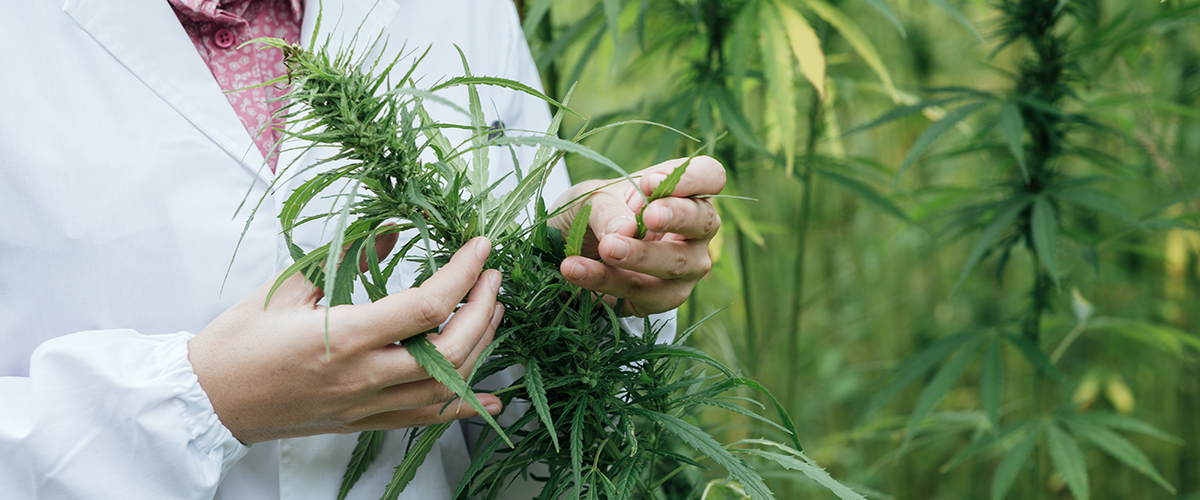A new proposed rule from DEA could expand marijuana research by allowing more marijuana to be grown for studies as well as adding a greater diversity in variety of marijuana for research.
The Drug Enforcement Agency (DEA) on Friday announced it would be taking steps to expand marijuana growing for scientific research. The long-awaited news comes three years after the agency initially announced it was accepting additional applications from marijuana growers for research.
“The Drug Enforcement Administration continues to support additional research into marijuana and its components, and we believe registering more growers will advance the scientific and medical research already being conducted,” DEA Acting Administrator Uttam Dhillon said in a press release. “DEA is making progress to register additional marijuana growers for federally authorized research, and will continue to work with other relevant federal agencies to expedite the necessary next steps.”
As a result of the proposed rule, DEA will be able to expand its list of registered marijuana growers and introduce a larger, and more diverse variety of cannabis for research. This shift comes after years of complaints from marijuana researchers on the lack of quality cannabis available for studies.
In Sept. 2019, DEA announced it would be moving forward on its promise first made in 2016, by expanding research opportunities. However, with that announcement, Dhillon noted that first the agency needed to develop additional rules for those seeking to grow marijuana for research.
Currently, there is only one facility authorized to grow marijuana for federal research purposes. Accused of blocking cannabis research, DEA had been getting pressure from researchers, cannabis advocates, and federal lawmakers for not acting on the 37 proposals from additional marijuana growers that have been submitted.
According to the news release from DEA, the new regulations will enable the agency to evaluate each of the 37 pending applications to grow marijuana for research under the applicable legal standard and conform the overall program to relevant laws.
Despite being legal in 33 states, cannabis remains a Schedule I drug under federal law, placing significant restrictions on medical and scientific research efforts. Currently, the DEA has registered more researchers on marijuana, marijuana extracts, and marijuana derivatives than on any other schedule I substance.
Most of the scientific research on cannabis right now comes from countries like Israel, Canada, the Netherlands, and the Czech Republic.
New Policy Brings Changes to Marijuana Research Field
One of the biggest changes from the new policy is that DEA will have sole ownership of any cannabis grown for research purposes.
According to the federal register notice, “under the proposed rule, DEA would have the exclusive right of importing, exporting, wholesale trading, and maintaining stocks of marihuana other than those held by DEA-registered manufacturers and distributors of medicinal cannabis or cannabis preparations. Further, this exclusive right would not apply to medicinal cannabis or cannabis preparations.”
This is a shift from the current policy, which allows a single authorized facility in Mississippi to grow cannabis through a contract with the National Institute on Drug Abuse (NIDA). DEA does not maintain ownership over its products.
The agency also included a provision stipulating that it is not responsible for maintaining the quality of any marijuana stored in its facilities.
“The Administration shall have no liability with respect to the performance of any contractual terms agreed to by a grower and buyer of bulk cannabis, including but not limited to the quality of any cannabis delivered to a buyer,” DEA said. “In the event that a buyer deems the delivered cannabis to be defective, the buyer’s sole remedy for damages shall be against the grower and not the Administration.”
Another change involves the amount of cannabis grown for research in the U.S. DEA has increased the annual production quota for cannabis by 575 percent – from 472 kilograms in 2017 to 3,200 kilograms in 2020. The growth is meant to accommodate the growth in research.
The new rule has not yet been finalized. DEA has opened a 60-day public comment period, ending on May 22, for individuals to provide feedback on the proposed new rule. The Federal Register Notice and instructions on how to submit a comment can be found, here.
More on Cannabis
Check back in at our cannabis news page for new developments on DEA regulations. Catch up on what’s going on in cannabis policy, business, and scientific research by reading our recap of the biggest cannabis stories from March 16-20.






